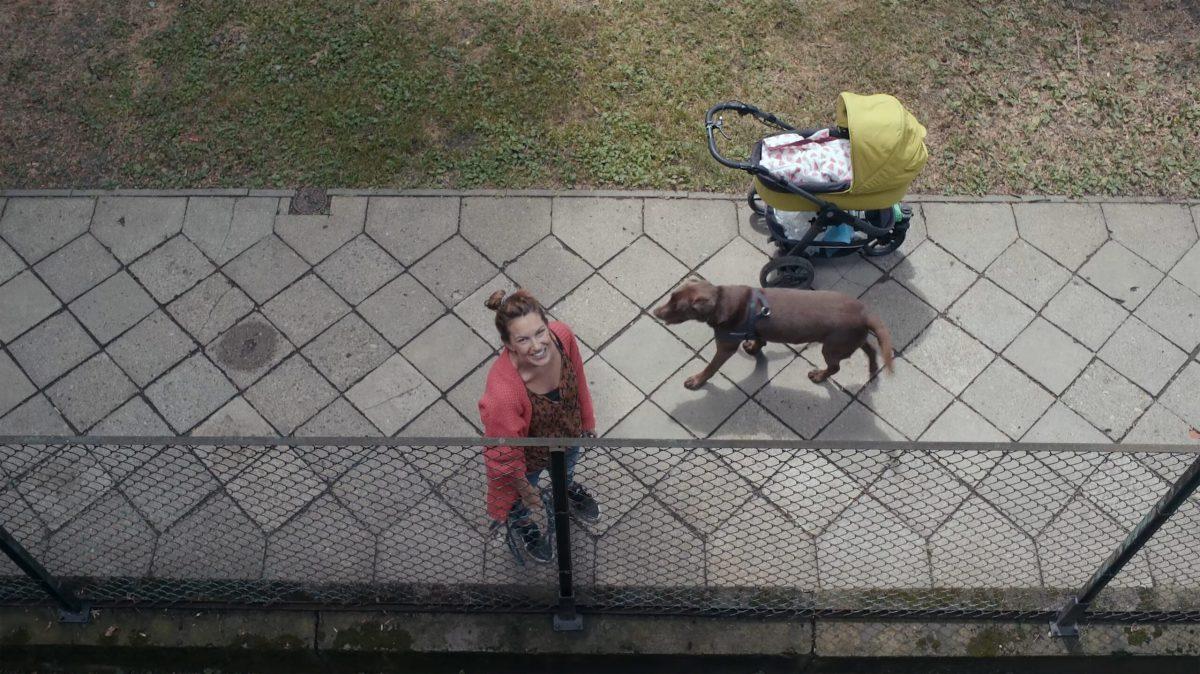
“The Balcony Movie” is about nothing in the way life is about nothing, and is thus beautiful in the way life is. Director Paweł Łoziński spends 100 minutes showing viewers a glimpse of his neighborhood in Warsaw, Poland, asking his neighbors who they are, where they’re from and occasionally what the meaning of life is.
“You’ve chosen very trivial questions,” says one of the strangers. And despite that perceived triviality, audience members at the Missouri Theatre giggled, wiped away tears and sat in quiet anticipation as they watched the seasons pass by just as the neighbors pass by, all from the perspective of the director’s second-floor balcony. The Balcony Movie was screened three times during the True/False Film Fest.
Łoziński admitted that he had no plan for the movie during a Q&A after the True/False movie showing. As he searches for his protagonist, we stare at the stretch of crisscrossed concrete sidewalk for the majority of the movie. We watch the seasons pass by way of fall leaves, winter snow and summer sunshine on the ground.
Life, without the meaning we add to it, is nothing but weeks that add up to seasons, which add up to years. We hear about the meanings strangers add to their lives. Łoziński’s choice of clips to accompany each change of weather creates contrasts of young and old, life and death. From frame to frame, we see old women in winter and new life in spring. The seasons change and time passes. The plotless narrative structure makes this truth nostalgic, but not tragic, because this is just the way life is and always will be. Without the people to add meaning, the pavement would just be pavement, and without the meanings people add, life would just be time passing.
Łoziński said he did not know most of the people in the movie before he stopped them to ask questions, but that he feels he has made many friends out of the people he has spoken to over the two and a half years he spent filming the HBO Europe documentary. This movie is not fast-paced, and it is not eventful, but it is beautiful.During the film, Łoziński shouts down from his balcony to many people passing by and says that he is making a movie about life. He asks them if they want to talk about life. Many people push him away, saying they are not interesting enough, or not young enough, or don’t have enough to say to be the protagonist he searches for. Many people admit that they don’t know who they are. Through these admissions and casual, joking conversations viewers identify with the speakers in their search for self. We hear our own voice in Łoziński’s, asking “Who are you?” We ask the question of the person on the sidewalk and ourselves in his voice. The truths revealed in the film are not new, but can be difficult to articulate in a meaningful way without a plot such as this one, and for that, this is worth seeing.
Love, if anything, is what motivates the movement of this story. Love for ice cream, babies, late husbands, Poland or anything else makes the unbearable bearable. One woman who looks to be in her 20s cheerfully recounts that she has learned from “Billions and Billions” by Carl Sagan, which she carries in her hand, that “we have no special place in the universe.” And yet this truth, depressing to some, becomes a joyfully-told factoid when the woman loves her life on this insignificant earth.
Another meaningful story is a man talking about his late partner of 40 years. The couple hid their love due to the anti-LGBTQ+ environment in Poland, but their love was meaningful enough that it was worth keeping secret. Love is also often what propels people to walk down this particular street at all. When asked who she is meeting, one woman says gleefully, “my lover!” This love gives the film purpose and is what allows it to happen at all.
Near the end of the movie, an older woman in a wheelchair steered by a younger woman says, “Life is meaning. That is enough.” Because the film takes place in a timeline where the year feels irrelevant because the stories are eternal, viewers are as unguided as Łoziński was at the beginning of the project. This lack of guidance is what creates the feeling of living along with those we are observing on the screen. To watch these people live and love through the passing seasons is the meaning. And that is enough. Edited by Shannon Worley, [email protected]